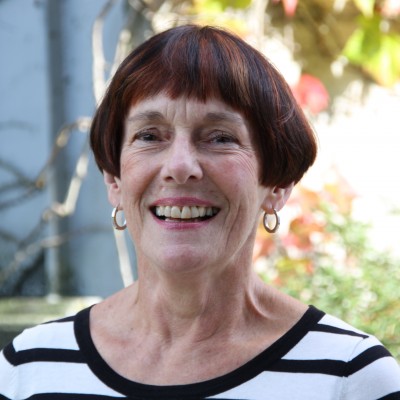
Professor Emeritus
Education:
University of Toronto
Scholarly Interests:
Arts-based Research, Developmental Theory, Exemplary Teaching Practice, Giftedness, Problem-based Learning, Social Cognition
Awards:
Killam Teaching Prize 1998
Selected Publications:
Porath, M. (in press 2013). The gifted personality: What are we searching for and why? Talent Development and Excellence.
Porath, M. (in press 2013). Developmental aspects of giftedness within the Actiotope Model: Implications for Chinese students. In S. Phillipson, H. Stoeger, & A. Ziegler (Eds.), Giftedness in East Asia: Explorations in the Actiotope Model of giftedness. Routledge.
Porath, M. (2012). Understanding the social context of learning: Gifted students’ perspectives. In H. Stoeger, A. Aljughaiman, & B. Harder (Eds.), Talent development and excellence (pp. 97-116). Berlin, Germany: LIT Verlag.
Cohen, A., Porath, M., Clarke, A., Bai, H., Leggo, C., & Meyer, K. (2012). Speaking of teaching. Inclinations, inspirations, and innerworkings. Rotterdam, The Netherlands: Sense Publishers.
Porath, M. (2011). School readiness for gifted children: Considering the issues. Exceptionality Education International, 21 (2), 16-28.
Porath, M., Ngara, C., Lai, Y., Fogel, K., & Lupart, J. (2010). Children’s understanding of teaching: A component of self-regulation? Psychological Test and Assessment Modeling, 52, 454-471.
Grassinger, R., Porath, M., & Ziegler, A. (2010). Mentoring the gifted: A conceptual analysis. High Ability Studies, 21, 27-46.
Ngara, C., & Porath, M. (2010). Conceptions of giftedness and creativity from Africa: The Shona culture’s perspective. Saarbrücken, Germany: VDM Verlag Dr. Müller.
Porath, M. (2010). Disentangling the complexity of social giftedness: Mind, brain, development, and education. In M. Ferrari & L. Vuletic (Eds.), The developmental relations among mind, brain, and education: Essays in honor of Robbie Case (pp. 231-242). New York: Springer Science.
Research Projects:
Superkids 2: Learning from the Life Trajectories of Our Most Able Students
The objectives of this project are to begin to trace the life trajectories of a group of adolescents identified in school as students whose intellectual and academic abilities were in the top 1% of their age peers, and who needed significantly advanced and enriched academic placements to match their abilities and exceptional motivation to learn. These highly gifted students were participants in the documentary film Superkids, directed by Harry Killas in 2004. Their stories, as portrayed in the film, were rich provocations for discussions about educational and career decision-making. Because of their ability to articulate their views on what education meant, could and should mean to them, especially in light of issues that all adolescents face, these students raised questions about life span development and education relevant to all students and their families. The inevitable question from individuals who viewed the film was, “What happened to these young people?” This study takes up that question in a preliminary examination of these students’ contemporary lives, again using film. PI: Harry Killas, Emily Carr University of Art + Design; Co-Investigator: Marion Porath, UBC. Funded by a SSHRC Insight Development Grant.
Libretti of Learning: Portraits of Journeys to Operatic Accomplishment
This research addresses how highly gifted young opera singers who have a learning disability cope in a musically and academically demanding program, improve consistently over their time in the program, and go on to remarkable success in opera and the arts world. Is it something about the complex, multiple demands of learning opera that facilitates their success? This question forms the basis for a foundational study of musical giftedness and learning disabilities, the centerpiece of which is portraits of these gifted young performers built from their own perspectives and from observations of their performances. The research will document the stories of the successes and challenges in school and university learning of gifted young opera performers with learning disabilities; share these stories with educators and other audiences suggested by the performers; and develop research questions to inform future research. Co-Investigator: Nancy Hermiston, Director of Voice and Opera, UBC. Collaborator: Laurel Parsons, Quest University. Funded by a SSHRC Insight Development Grant
Courses Taught:
EPSE 516
EPSE 565D
EPSE 590